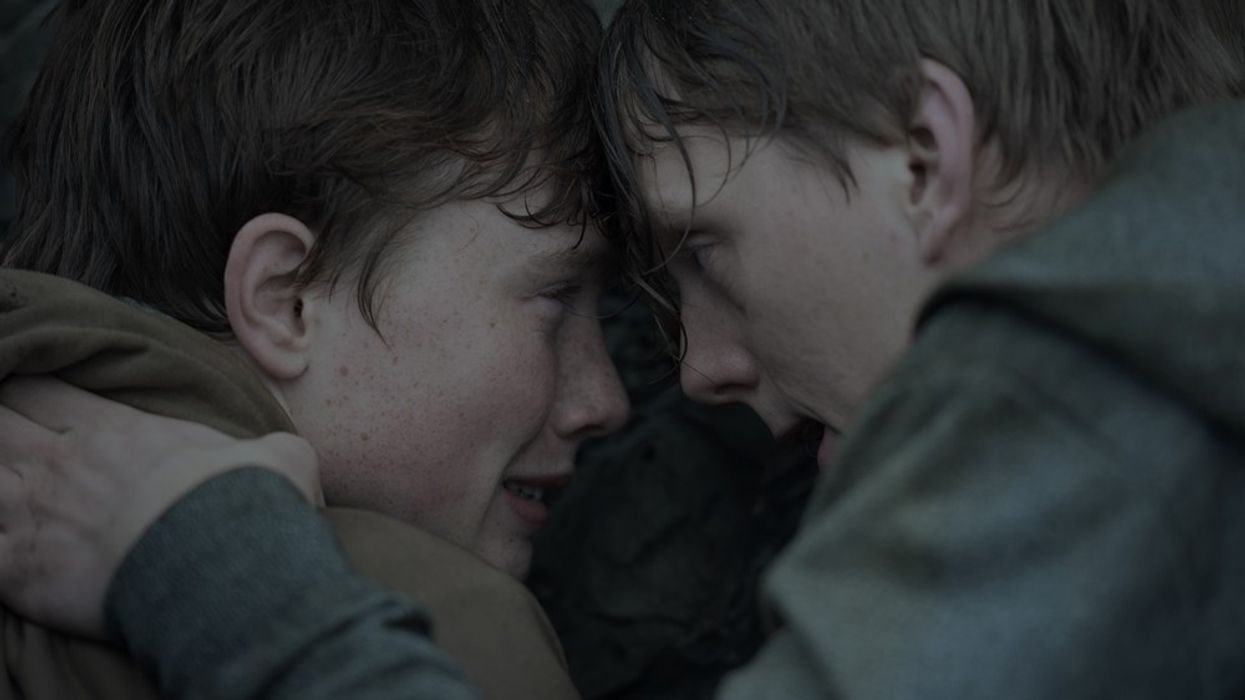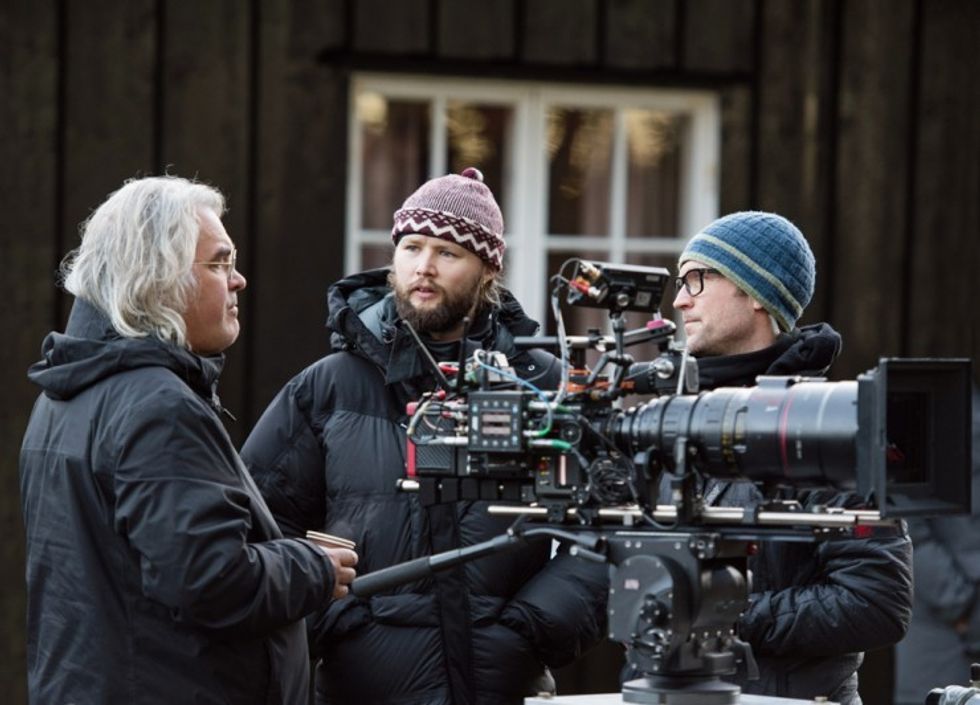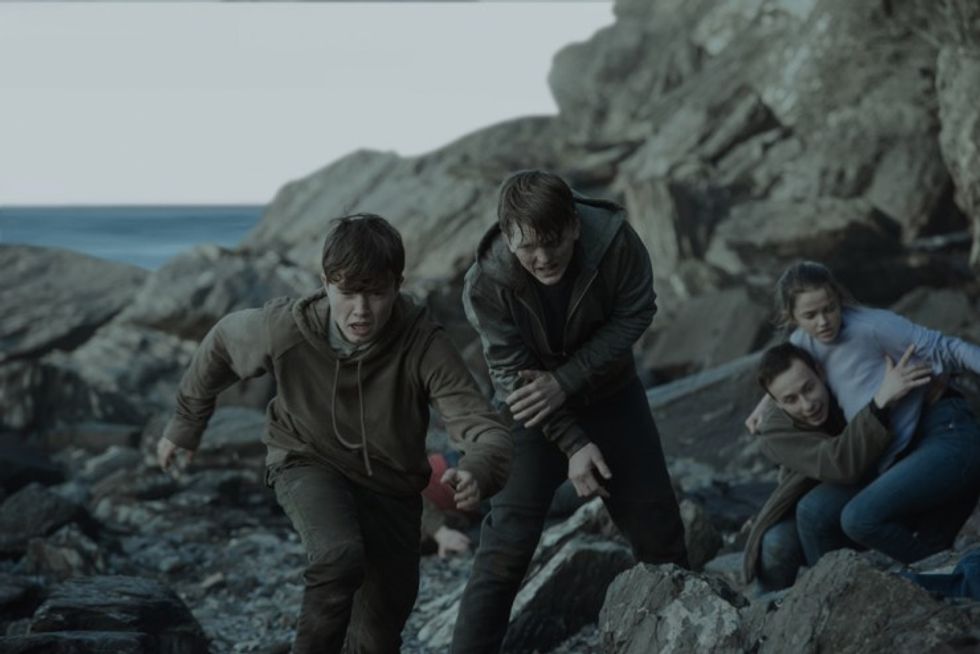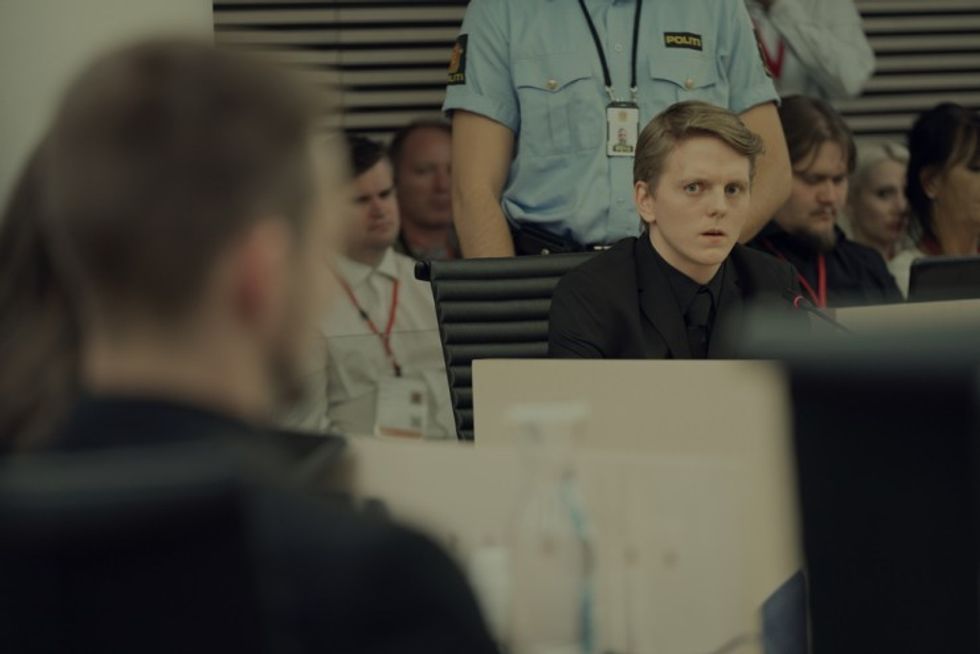A Conversation With Editor William Goldenberg On Crafting Story, Performance & Emotion
Advice and tips every filmmaker should want to know.

If you ever get a chance to meet William Goldenberg, he prefers to be called Bill. He's as humble as they come and has been editing films for over twenty-five years. Heat, Pleasantville, The Insider, Gone Baby Gone, Zero Dark Thirty, The Imitation Game, Unbroken, Detroit, and Ben Affleck's Argo, which he won an Oscar, to name a handful.
His latest, 22 July from director Paul Greengrass, currently streaming on Netflix, is about the tragic terrorist attack that took place in Norway on 22 July 2011. 77 people were killed after a far-right extremist detonated a bomb in Oslo before carrying out a mass shooting at a camp for teens. It's an emotional story about survival shown through the perspective of multiple characters including victim Viljar Hanssen played by Jonas Strand Gravli and their assailant Anders Breivik (Anders Danielsen Lie).
We sat down with the editor and explored cutting for story, character, and emotion – and to find out how to immerse an audience in a narrative where already know the ending. Here's what we learned.
On working with a new director
I knew of Paul [Greengrass] from his work but I didn’t know him personally. When we started on 22 July, he was so open it took me a minute to get used to it. He sent me different drafts of the scripts, audition tapes, all the research he had done. He copied me on all the email conversations… he respected my opinion right from the start.
Normally, there’s a feeling out process between the director and the editor, but with Paul, this wasn’t the case. I met him the night before shooting in Norway and I came to understand this is how Paul works. He’s a collaborator and he wants to hear everyone’s opinion. He picks and chooses the best ideas and goes from there.
As an editor, you’ll most likely be cutting straight from the script and then work together with the director. But there are a few exceptions out there like Paul. He is the type to say, do anything you want and if I don’t like it, I will let you know. I almost didn’t believe him. It felt like a setup. But then I just started doing stuff and it gave me this wonderful freedom – a freedom to be wrong.
A lot of the times you’ll be afraid of working with a new director. You’re afraid of being wrong so you cut in a way that’s safe. With someone like Paul, he told me I won’t hurt his feelings about anything. That he’d been doing this for a while and to not worry about him. If you find yourself working with a director similar to Paul, you’ll feel this freedom to try whatever you want and problems are solved out of trusting each other.
I’ve worked on a lot of material about true events. I tend to do research in terms of reading news reports and articles online but I’ll wait to read any books until after the movie comes out. I find if I read the book about a particular story I’ll get a little too wrapped up in the details and get tunnel vision. That happened on Seabiscuit. I read the book twice and remember saying, “in the book this happened…” which was responded with, “well, we’re not making the book.”
It’s important to have a sense of the story going in. On 22 July, I ended up re-watching the courtroom footage to understand the demeanor and disposition of Viljar Hanssen and Anders Breivik and those affected. Also, being on location in Norway I was able to talk to a lot of people who were there. Hearing what they had to say paralleled what happened on September 11. (You can download the script for 22 Julyhere.)
On crafting story and performance
It starts when you watch dailies. But if you can be on location during filming, one of the benefits is being able to talk with the director while it’s happening. I met with Paul [Greengrass] almost every night in the hotel lobby. We talked about what he shot, what he will be shooting… you try to learn what he was going for as a storyteller. Then when we’re looking at the dailies, you have all these conversations in your head to pull from to piece the story and performances together. You’ll start feeling it in your gut. That this moment feels right. It’s instinctual. A lot of it is having those conversations and re-reading the script multiple times. Your research helps too. So when you have those moments that come up, you can go by instinct but it’s an educated instinct in a way.
When editing you’ll always want to ask yourself what is the subtext of the film. What is the subtext of every scene? What is the subtext these characters are going through? When I’m putting a scene together I’ll find those moments where you feel what the actors are going though. The term “transcends film” is a little overstated, but put yourself in the shoes of the audience. If you feel like you’re watching reality, you’re in the right spot. Then build the movie around those moments.
On building emotion
Paul and I talked about restraint. We wanted to get away from any soapbox moments that may have been in the script and remove them in the edit. We didn’t want to have any grandstanding or want to politicize a point of view. We wanted the audience to take away a message from the film as told by these characters. Having that idea in our head all the time made us very careful about what we left in and what we took out. As an editor, you can change the stakes to the story and decide what people are going to say or not say.
We knew with 22 July it was going to have an overwhelming impact in terms of the collection of raw emotions people go through when watching these tragic events. Understanding that accumulated effect would be strong, it was important to be careful about not overplaying moments – to make sure they were real and raw but not overplayed.
It goes back to instinct. I have a lot of practice in taking the audiences on journeys where they already know the outcome. It’s a matter of getting them so deeply involved in the story they lose themselves in it. They feel it with the characters. When you cut the material for its subtext, the audience feels that certain empathy. It feels as if they are emotionally attached to the characters. At least that’s my theory about it.
When we did The Insider [director Michael Mann] we talked about this very thing and what we discovered together is when the scripts are so well written, the story tells itself in a way. The layers of emotion grabs the audience and lets them go on the ride, experiencing this thing they think they know the ending to as if they are staring at it for the first time.
On 22 July, we modulated the pace of Jonas [Strand Gravli, (Viljar Hansse)] so it had a certain dynamic range to it. So when he delivers his speech it crested at a certain moment. We wanted it to feel like a real human experience without any kind of music pounding behind it. What music there is, is very subtle – you almost don’t notice it. It’s just there to support the emotion.














